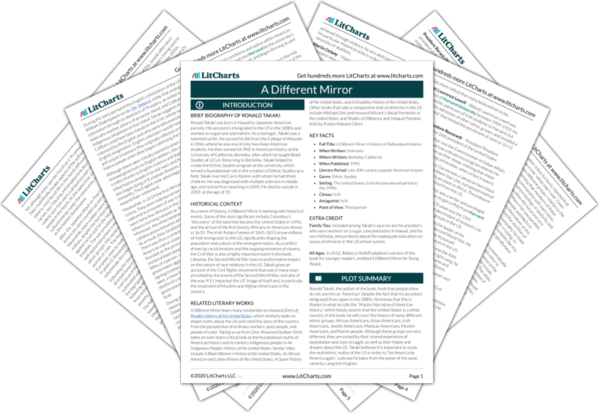As the oldest university in the US, Harvard has played an important role in the building of the nation. Takaki’s mentions of Harvard in A Different Mirror is less focused on the university’s role as a center of knowledge, and more on the part it has played in producing the social hierarchy of America. Who could or could not attend Harvard was often a metric of how integrated, accepted, and assimilated a particular ethnic group was thought to be. However, as Takaki shows, this manifested in a complex way. For example, Abbott Lawrence Lowell, who was Harvard’s president in the early 20th century, welcomed the Irish into the student body. Lowell believed that the Irish would assimilate and blend well into American society, and his acceptance of the Irish at Harvard helped promote Irish social standing. At the same time, Lowell was responsible for installing Harvard’s Jewish quota in the 1920s. Nonsensically, he argued that Harvard was the least anti-Semitic place imaginable, but that it was also necessary to limit Jewish enrolment to ensure that anti-Semitism didn’t take root there. By contrasting the examples of Harvard’s treatment of Irish and Jewish students, it becomes possible to see that Harvard was a measure or funnel through which the nation’s white elite was produced. Through their acceptance by institutions like Harvard, Irish people became seen as white, and took positions among the elite of the country. For Jewish students, it was much longer before they were seen as “assimilable” and accepted into whiteness.
Harvard University Quotes in A Different Mirror
President Abbott Lawrence Lowell viewed the Irish favorably and highlighted Harvard's role in assimilating them into American society. “What we need,” he had explained earlier, “is not to dominate the Irish but to absorb them. We want them to become rich,” he added, “send their sons to our colleges, and share our prosperity and our sentiments.” In his opinion, however, such inclusionism should be reserved for certain groups. The "theory of universal political equality” he argued, should not be applied to "tribal Indians," "Chinese," or "negroes under all conditions, [but] only to our own race, and to those people whom we can assimilate rapidly." Lowell added that the Irish were unlike Jewish immigrants: they were Christian as well as culturally similar to Americans of English origin. The Irish could, therefore, become "so merged in the American people that they would not be ‘distinguished as a class.’”

Unlock explanations and citation info for this and every other A Different Mirror quote.
Plus so much more...
Get LitCharts A+Expressions of resentment and ethnic epithets began to circulate: "Jews are an unassimilable race, as dangerous to a college as indigestible food to man." […]
President Abbott Lawrence Lowell announced that the college had a "Jewish problem" and led efforts to curb their enrollment. "It is the duty of Harvard," he wrote privately in a letter to a member of the Board of Overseers on March 29, 1922, "to receive just as many boys who have come, or whose parents have come, to this country without our background as we can effectively educate; including in education the imparting, not only of book knowledge, but of ideas and traditions of our people. Experience seems to place that proportion at about 15%."












